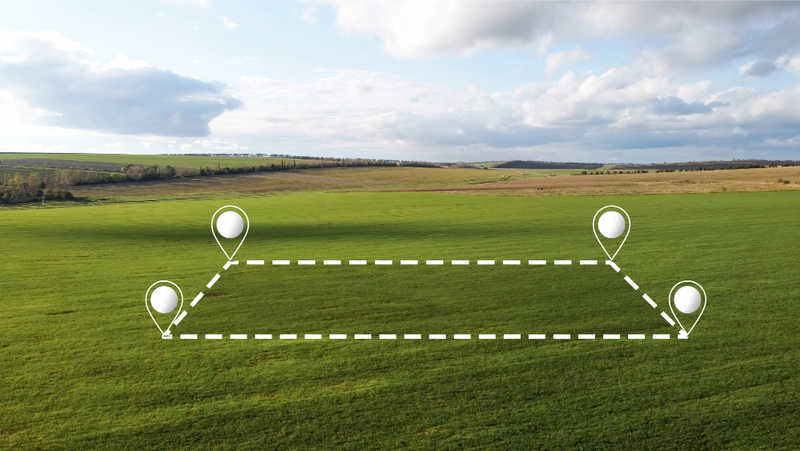Crucial Differences between Freehold & Leasehold Property
The main difference between freehold property and leasehold property is the land ownership and control of the property. With your property, as an owner you have all rights to whatever you wish by following the local regulations. In the case of leasehold property, the ownership is provided by the government for a tenure of 99 years you can extend the leasehold to 999 years if the owner of the property wishes to extend the lease, you will have to pay a price for the lease extension.
Freehold Property:
Freehold property can be defined as any estate of any entity that is “free from hold” besides the owner. The owner of such properties can enjoy free ownership (sell, renovate or transfer) of the property and can reuse the property for any purpose according to the local regulations. If the owner wants to resell the property, it won’t require any legal concern and it will require very less paperwork. Considerably, freehold properties are more expensive than leasehold properties. There are no restrictions on the right of the property. The owner of the freehold property might just have to pay a maintenance charges. This type of property can be transferred by sale deed registration.
Advantages:
- Complete ownership and owners can make changes to the structures of their house
- It can be transferred through generations.
Disadvantages:
- Responsibilities of maintenance.
- Availability is designated to certain areas only
Leasehold Property:
Leasehold property means, if you have purchased a leasehold property, you have the right only to stay for a particular period of time. In this case, the buyer is not the owner of the property. You must pay the ground rent to the owner or the leaseholder of the property, once the lease period is expired, the property rights will go back to the owner. It is necessary to know that the tenure of the lease will influence the value of the property. It is possible to extend the leasehold according to your comfort.
Advantage:
- It can be renewed at the end of the term, you can continue to live in the property if you want to extend.
- Mostly the landowner is responsible for maintenance of the property.
Disadvantage:
- To make changes in renovation or remodeling you have to make the permission from the landowner.
What kind of property cannot be freehold?
Apartments or flats can never be freehold because they are constructed on the same land that belongs to the same land owned by the builder or developer, and each apartment the owner will be a shareholder.
What type of properties are preferred by buyers?
Buyers usually prefer freehold properties to invest because of the chances of capital growth associated with the property and stability. Freehold property will give the entire ownership to the owner instead of the temporary ownership title provided by leasehold property. No matter which option you choose, it is important to understand the responsibilities and legal rights of each type of ownership. If you are looking for a house, you choose a freehold property instead of leasing it. But if you are a seasoned investor with short term goals then you can choose leasehold property.
Differences between a freehold and a leasehold property:
| Freehold Property | Leasehold Property |
| The land belongs to the owner | Land belongs to the leased owner for a certain number of years |
| Ownership is indefinite | At the end of the lease period, the owner must pay to end the lease. |
| Not required to transfer the ownership | In order to transfer the ownership it is required state consent obtained at the land office |
| Banks will finance easily | If the banks the lease period is less than 30 years, most of the banks will not finance easily. |
Converting a leasehold property into a freehold property:
You can easily convert a leasehold property into a freehold property if you have a clear sale deed, a NOC and General Power of Attorney (GPA). You must pay the conversion charges to the authorities. In the case of non-sanctioned building plan, you can get the property converted on the basis of proof of permanent electricity connection or house tax assessment.
| Name | Leasehold | Freehold |
| Tenure | Lease duration will usually be 30,60,99 or 999 years | No time duration |
| Approvals Required | Lease transfers require state or its equivalent approval | Few limitations on to transfer the property |
| Ownership Rights | You just have a lease from the freeholder or the landlord to use the property for ‘N’ number of years | You will own the building and the land it stands on, in perpetuity. |
Latest developments:
- In Chandigarh, owners of around 50,000 leasehold properties can become sole owners of the houses and the rates of the properties have been finalized too.
- People staying in rented properties, leased properties or those who are running businesses for decades in Delhi can now but 11 of 27 posh markets that are under New Delhi Municipal Council’s ambit.
Points to remember:
- Share of freehold property is when the freeholder divides his responsibility and the leaseholder become directors of their leasehold.
- A service charge is usual but is not essential in case of leasehold properties.
- The lease length will be extended by agreement with the freeholder at a specified cost.
- The lease includes, rights of way and access, repairing and maintenance covenants, details of ground rent, enforcement covenants.
- Mortgage lenders like there to be at least 50 years left at the end of the mortgage term (1.e. 75 years in total)







